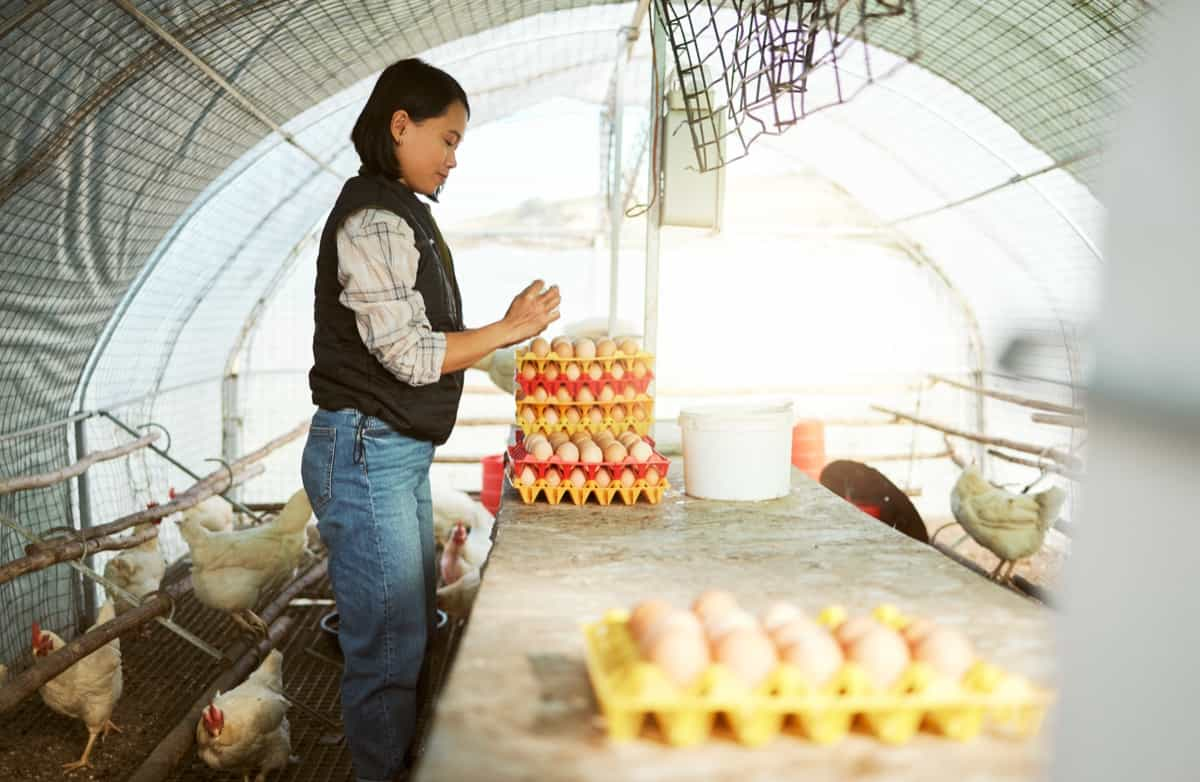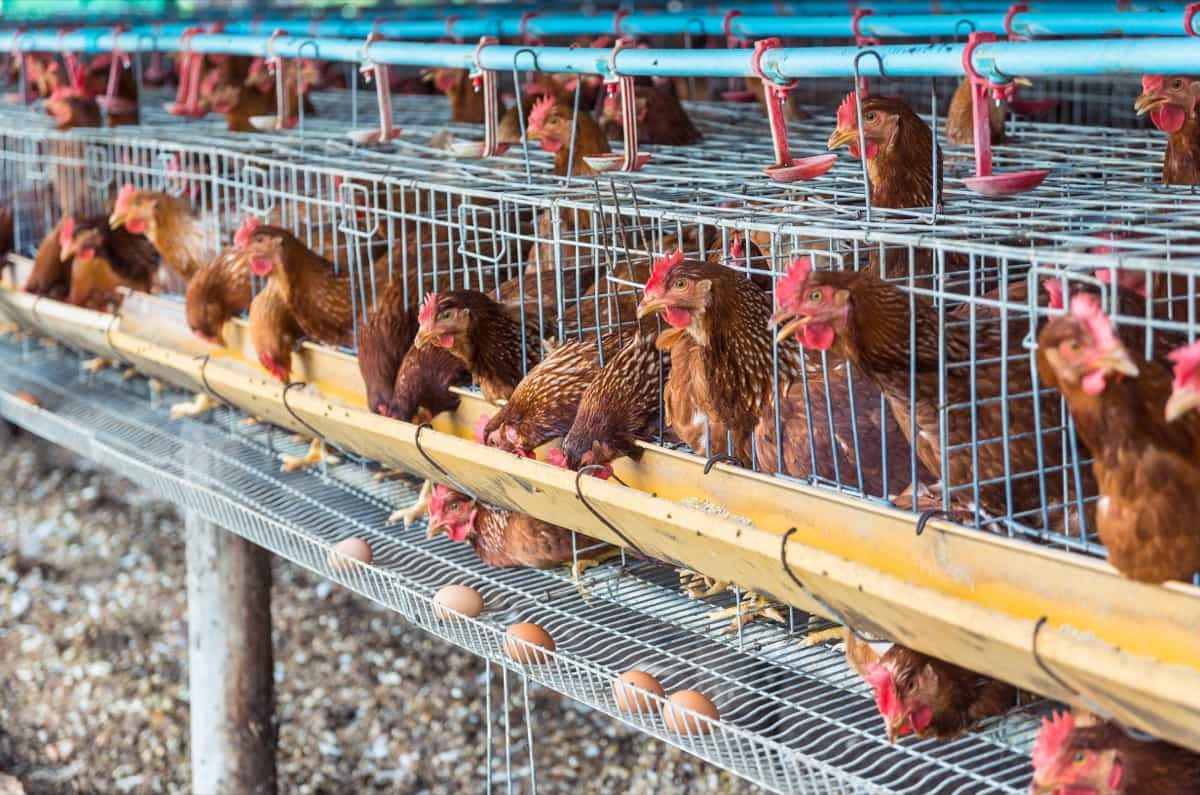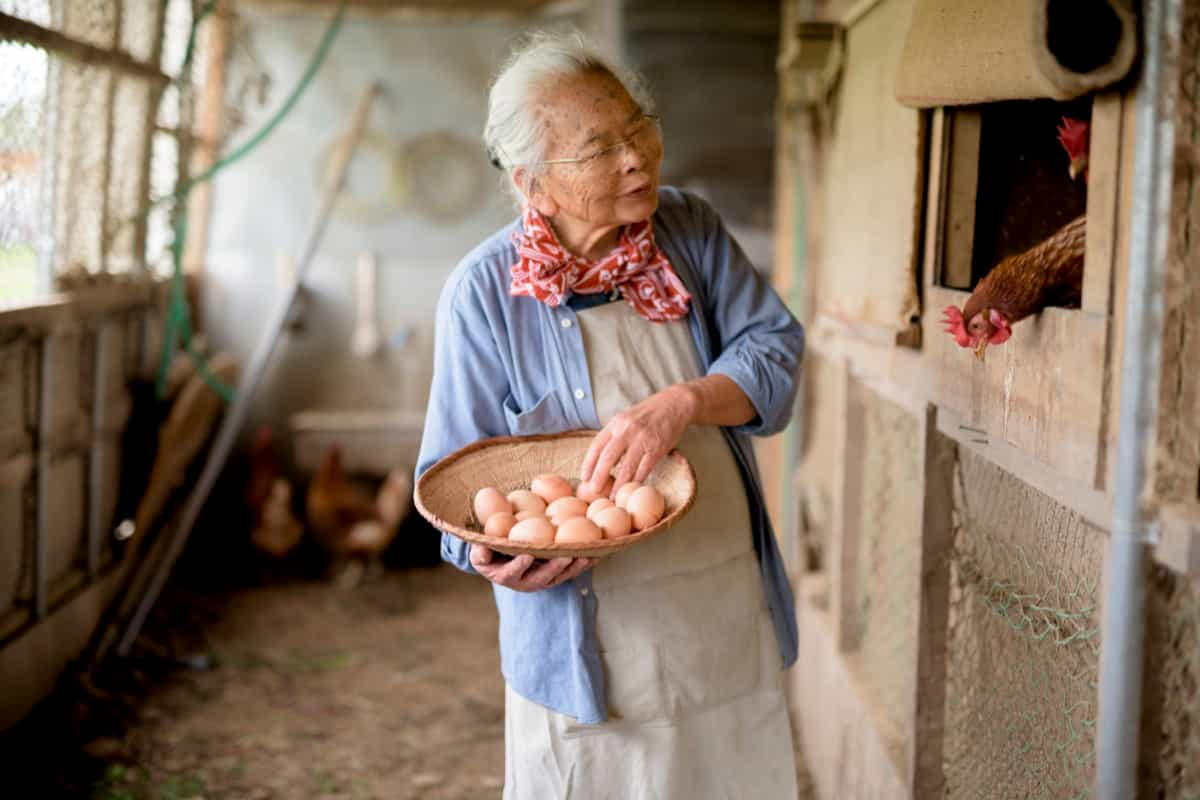Eggshell quality is a crucial aspect of egg production in chickens. However, occasionally, chickens may lay soft-shelled eggs, which can concern poultry farmers. Understanding the causes behind this issue is essential to maintain the health and productivity of your flock. In this article, we will explore the various factors affecting eggshell quality in chickens and investigate the reasons behind soft eggs.

Why Are Your Chickens Laying Soft Eggs
Understanding the Causes of Soft-Shelled Eggs in Chickens
Soft-shelled eggs, also known as shell-less or rubber eggs, are common in backyard chicken flocks. These eggs lack the hard calcium carbonate shell typically found on eggs. Instead, they have a thin, pliable membrane surrounding the yolk and egg white. Soft-shelled eggs can happen occasionally and are usually not a cause for concern. If this becomes a frequent occurrence, it is an underlying problem that needs to be addressed.
Factors Affecting Eggshell Quality in Chickens: A Comprehensive Analysis
Genetics plays a significant role in determining eggshell quality. Certain breeds of chickens may be more prone to laying soft-shelled eggs than others. Suppose you consistently experience issues with soft eggs in your flock. In that case, it may be worth considering the genetic background of your chickens and potentially selecting breeds known for their strong eggshells. The age of the chicken can also impact eggshell quality.
Younger hens who have just started laying eggs may produce eggs with weaker shells until their reproductive system fully matures. Similarly, older hens may experience a decline in eggshell quality as they age. Overall, health is crucial for maintaining good eggshell quality. Chickens in poor health or underlying medical conditions may produce eggs with weaker shells. It is important to provide your flock with regular veterinary care and ensure they receive a balanced diet to support their health and egg production.
In case you missed it: Chantecler Chicken Breed: The Underrated Dual Purpose Breed for Colder Climates

Investigating the Reasons Behind Soft Eggs Laid by Your Chickens
- Start by evaluating their diet and ensuring they receive sufficient calcium. Provide calcium supplements if necessary and monitor their egg production to see if the shell quality improves.
- Observe your chickens for signs of stress, such as feather loss, reduced appetite, or behavioral changes. Address any potential stressors and adjust their environment to alleviate stress.
- If you suspect a disease or health condition is causing the soft-shelled eggs, consult a veterinarian for a proper diagnosis and treatment plan.
- Timely intervention can prevent further complications and ensure the overall health of your flock.
The Impact of Nutrition on Eggshell Quality in Poultry
Nutrition is crucial in maintaining laying hens’ overall health and eggshell quality. A balanced diet with vital nutrients like calcium, phosphorus, and vitamin D is vital for producing strong eggshells. Insufficient calcium levels in the diet can lead to soft-shelled eggs. Ensuring your chickens have access to a high-quality feed that meets their nutritional requirements is important. Supplementary calcium sources like oyster shells can help prevent calcium deficiency and improve eggshell quality.
Environmental Factors and Soft Egg Production in Chickens
Environmental conditions can significantly impact eggshell quality in chickens. Extreme temperatures during the hot summer months can cause stress to lay hens and affect their egg production. High temperatures can cause dehydration, which can result in softer eggshells. Maintaining proper ventilation and providing shade and fresh water for your chickens can help mitigate the effects of extreme weather conditions and reduce the likelihood of soft egg production.
Hormonal Imbalances and Soft-Shelled Eggs in Hens: Unraveling the Connection
Hormonal imbalances can also contribute to the production of soft-shelled eggs in hens. Hormones like estrogen and progesterone are crucial in the egg-laying process. Any disruptions in hormone levels can affect the development of the shell gland, leading to the formation of soft-shelled eggs. Certain factors, such as stress, disease, or age-related changes, can disrupt hormonal balance in hens. Consulting with a veterinarian to identify and address hormonal imbalances can help alleviate the issue of soft egg production.
Identifying and Addressing Calcium Deficiency in Laying Hens
Calcium deficiency is one of the causes of soft egg production in chickens. It is important to recognize the symptoms of calcium deficiency, such as weak eggshells and decreased egg production. Regularly monitoring the calcium levels in your chickens’ diet and ensuring they receive adequate calcium supplementation is essential.
A separate container of powdered oyster shells or limestone grit will allow the hens to consume extra calcium as needed. Additionally, offering a well-balanced diet that includes calcium-rich foods like leafy greens and fortified feed can help prevent calcium deficiency in laying hens.
The Role of Genetics in Eggshell Quality and Soft Egg Production
One significant factor influencing eggshell quality is genetics. The breed of chickens you have plays a crucial role in determining the strength and thickness of their eggshells. Some chicken breeds are naturally predisposed to laying eggs with softer shells. In such cases, it becomes essential to manage your expectations and understand that soft eggs may be a characteristic of certain breeds. If you are specifically looking for chickens that lay eggs with hard shells, consider selecting breeds known for their strong eggshell quality.
In case you missed it: Catalana Chicken Breed: Dual-Purpose Birds for Hot Climates

Stress and Its Influence on Eggshell Formation in Chickens
Stress can have a significant impact on eggshell formation in chickens. When chickens experience stress, it can disrupt their normal egg-laying process and produce soft-shelled eggs. Stressors can range from environmental factors, such as extreme temperatures or inadequate lighting, to social factors, such as overcrowding or introducing new flock members.
Additionally, nutritional deficiencies, diseases, and parasites can also cause stress in chickens, leading to soft egg production. Providing a calm and comfortable climate for your chickens is crucial, ensuring proper lighting, temperature control, and adequate space to reduce stress levels and promote healthy eggshell formation.
Management Practices to Prevent Soft-Shelled Eggs in Your Flock
Proper Nutrition: A balanced and nutrient-rich diet is essential for maintaining good eggshell quality. A diet lacking essential minerals, vitamins, and protein can lead to weak or soft shells. Ensure your chickens have access to a well-formulated layer feed that meets their nutritional requirements.
Adequate Calcium Intake: Calcium is a crucial mineral for forming strong eggshells. Insufficient calcium in the diet can result in soft shells. Offer a separate calcium supplement, such as crushed oyster shells or commercially available calcium sources, free-choice to your hens. This will ensure that they have access to enough calcium to produce strong shells.
Stress Reduction: High-stress levels can negatively impact egg production and eggshell quality. Ensure that your chickens have a comfortable and stress-free environment. Minimize disturbances, provide adequate space, and maintain proper ventilation and temperature control in the coop.
Hygiene and Cleanliness: Clean and hygienic surroundings are vital for preventing eggshell issues. Regularly clean nesting boxes, remove soiled bedding or droppings, and provide fresh water daily. Dirty eggs can be more susceptible to bacterial contamination, compromising shell quality.
Regular Health Checks: Soft-shelled eggs can sometimes be a symptom of underlying health issues. Regularly check your flock for signs of illness or disease. Consult with a veterinarian if you notice any abnormalities in egg production or if soft-shelled eggs persist despite implementing management practices.
In case you missed it: What You Should Know About Raising Chickens and Ducks Together

Conclusion
Various factors, including calcium deficiency, poor nutrition, stress, age, genetics, or infectious diseases, can cause soft-shelled eggs in chickens. Addressing these causes and providing appropriate care can help ensure that your chickens lay strong and healthy eggs. Monitoring your flock’s diet, environment, and overall health is crucial in preventing soft-shelled eggs and maintaining a productive and thriving flock.
- Feed Your Flock for Less: Top 10 Tips to Save on Chicken Feed
- Ultimate Guide to Ossabaw Island Hog: Breeding, Raising, Diet, and Care
- Hatching Answers: The Top 10 Reasons Your Chickens Aren’t Laying Eggs
- Eggs and Economics: Breaking Down the Cost of Raising Backyard Chickens
- Defend Your Greens: Proven Methods to Keep Iguanas Out of Your Garden
- Ultimate Guide to Cinnamon Queen Chicken: A Comprehensive Guide for Beginners
- Ultimate Guide to California Tan Chicken: Breeding, Raising, Diet, Egg-Production and Care
- Ultimate Guide to Marsh Daisy Chicken: Breeding, Raising, Diet, and Care
- 10 Types of Chicken Farming Businesses You Can Start for Profits